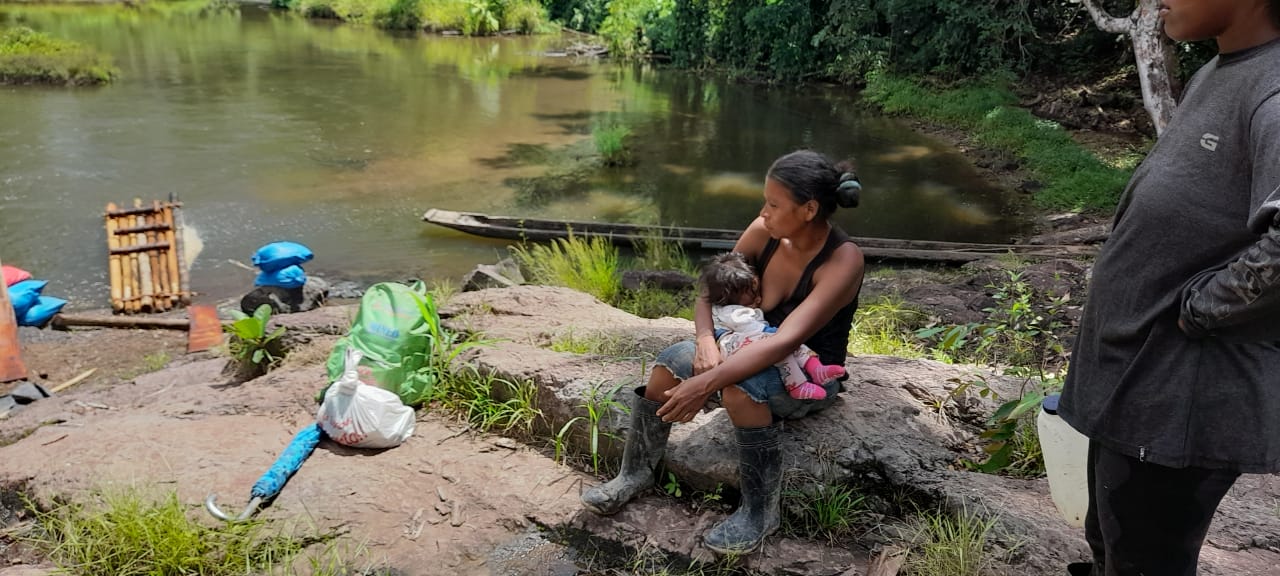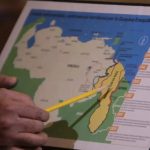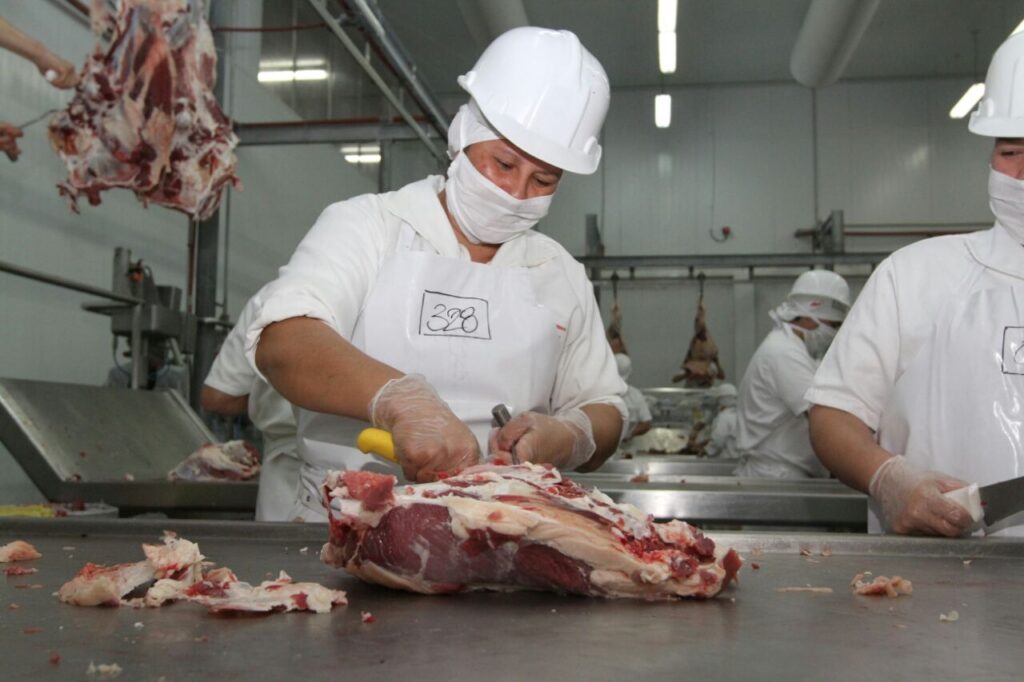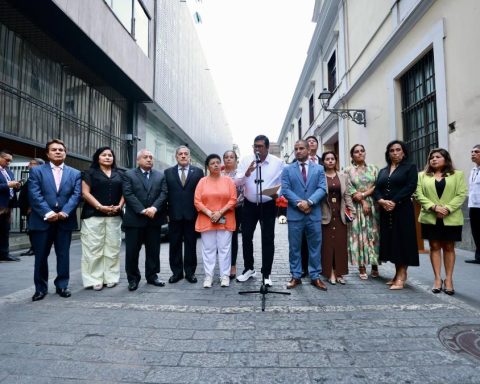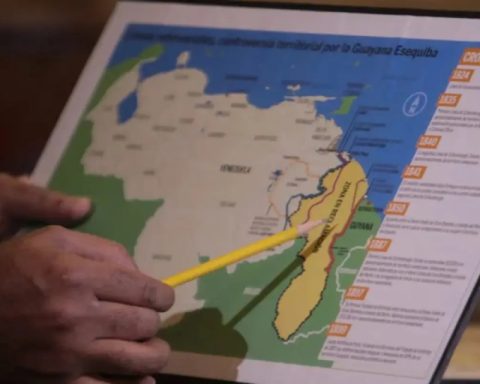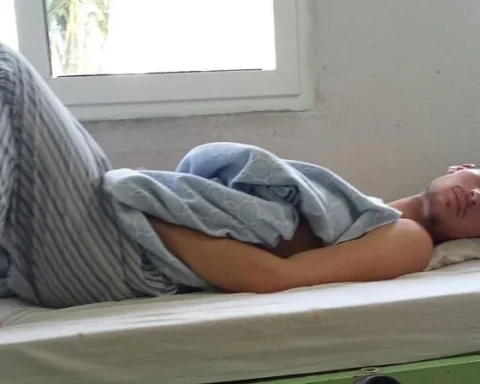The new threats of attacks by armed settlers, added to the sighting of “new lanes” (roads), caused 68 Miskito indigenous families to abandon their productive areas and take refuge in the community of Sang Sang, located on the banks of the Coco River in the Li territory. Lamni, in the northern Caribbean of Nicaragua, where they have no job, house or land to farm.
Juan Carlos Ocampo, from the Prilaka Foundation, detailed in an interview with CONFIDENTIAL that they carried out a census in which they counted 348 displaced persons, who make up 68 families; 48 who lived permanently in the productive areas and 20 temporary who only came and went to work.
“The communal judge of Sang Sang, worried about the safety of the community members, went to warn them of new threats made by the settlers. On the night of April 17, he arrived in the mountains, the productive zone where the indigenous people work, and the families began to leave on the 18th, fleeing towards the center of the Sang Sang community”, he explained.
CONFIDENTIAL spoke with two members of the displaced families, who requested anonymity for fear of reprisals and explained that —prior to the threats from the settlers through audios that reached the communal judge— several of the community members reported that “they had seen the settlers armed” and “new lanes (roads) within the productive zones”.
“María”, 54, indicated that —before leaving the Kika Langni productive zone— one of her eight children saw groups of armed settlers who were roaming the area.
“While my sons were collecting supplies, the settlers were making a lane, a path, to divide, and they went out to the milpa, and when the boys wanted to run they told them to leave or they would kill them,” he denounced.
“I went out with 20 other members of my family. We did not take anything, we grabbed the children and left, ”she recounted.
The citizen affirmed that, on her land, they had cultivated cassava, malanga and plantain; and she left “two quintals of harvested beans, about 40 quintals of rice, about ten head of cattle, about 30 chickens and eight pigs”.
“We work so hard and right now, leaving the forest because of the threat of the settlers, I have no way to meet the needs of my family,” lamented “Maria.”
“They say they are going to kill everyone”
“José”, 68 years old, is another Miskito Indian who was forced to leave the area where he worked. He explained that he left the Killwia productive zone, located about a four-hour drive from Sang Sang, on April 18, together with some 40 members of his family, after the communal judge warned them of the possible attacks. .
“The communal judge of Sang Sang came to the productive zone, where we were, to tell us that we had to leave. He put us the audios that the settlers had sent, in which they say that they are going to kill everyone, without distinction, men, women or children, so we had no choice but to leave, ”he indicated.
“We couldn’t have any food. We took some clothes, we took out the children, the elderly, we walked, some of us grabbed the raft and others walked away, ”she recounted.
The man left in Killwia some 40 head of cattle, 20 quintals of rice, ten of beans, ten pigs, 20 chickens and cassava and banana plantations.
He assured that he had lived in the productive area for 48 years and has seen how the invasion of settlers in the area has worsened.
“In 2018 I ran into settlers and they told me to leave my machete on the ground, to approach them and that they were going to talk to me and told me that they were going to occupy our land by hook or by crook. Right now the fear is that the threats are carried out, we see so many lanes that they are making, leaving in the tacotales, taking ranches in the area, so we were very afraid that it would come to us, ”he said.
“We want to return safely to our lands”
“María” and “José” emphasize that their complaint is made not only for them but for the more than 300 Miskito indigenous people who, like them, were forced to leave their lands.
“Although it is only the two of us who are speaking, it is more than 300 people who suffered from the invasion. Many do not speak because the settlers can kill us even on our farms”, they highlighted.
They explained that in Sang Sang, although they are “a little safe”, they do not have a house, work, food or land to farm.
“Some times we eat for a while, other times two, because here in the community we don’t have land, we don’t have rice. We go out to look for supplies on other people’s farms, we try to fish, but our concern is how we can safely return to our lands,” María stressed.
“We are sad, powerless, we want freedom to work our land, I want to return to my land to work safely,” he remarked.
“José” regretted not having land, a house or food in Sang Sang, but he also thanked “some families have helped with food and others have given us work for food.”
“We are in a very delicate situation, due to the lack of food, and we ask the international community and humanitarian aid people to take into account the food situation we are experiencing in Sang Sang. We raise our voice because we want the authorities to listen to us and solve this problem of invasion”, commented “José”.
A data analysis done by CONFIDENTIALbased on the reports of attacks in recent years, confirms that, from April 2018 to January 2021, the invasions of settlers increased and left a balance of at least 17 Miskito and Mayangna indigenous people killed, unknown to date. the arrest or conviction of those responsible.
